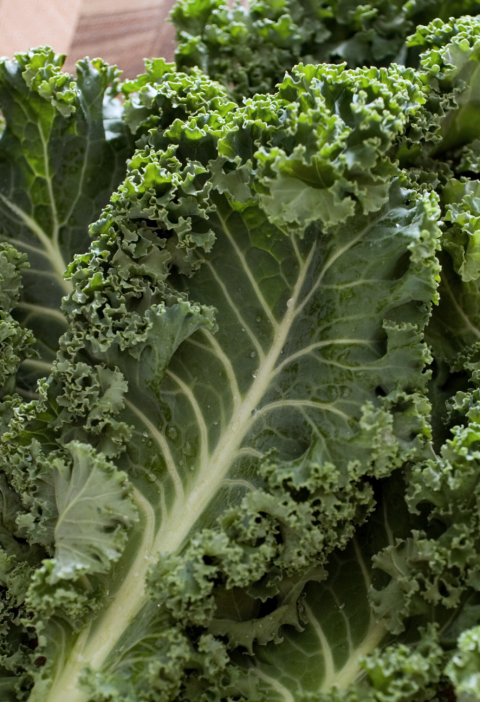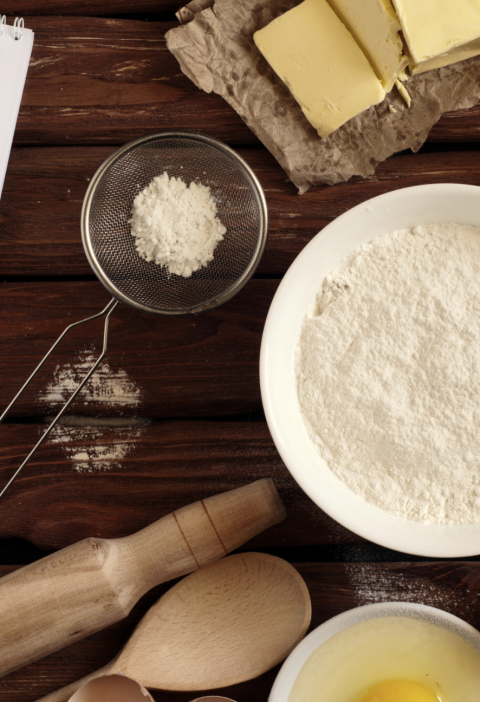There is a time and a place for tracking numbers on a scale. But obsessively weighing yourself can often do more harm than good – especially for your mental health. (In fact, one meta-analysis found that weighing too frequently may be associated with anxiety, eating disorders, and more!) That said, being within a healthy BMI range can decrease risk of all sorts of health problems, from diabetes to joint pain to sleep apnea.
So what if you need to lose a little excess weight, but you don’t want to get caught up in the scale obsession? Here are three things to track that may help.
1. Track your water intake
Hydration is key to so many health outcomes. Drinking enough water helps regulate your digestion, prevent kidney problems, boost your energy, and more!
If you’re in need of shedding a few pounds, take a look at what you drink. Are you sipping extra calories throughout the day? The average adult drinks 385 calories a day from their beverages — usually without adding much nutritional value. By replacing soda, coffee, or juice with water, you ensure that your calories are coming from nutrient-rich foods instead.
Drinking enough water may also help your body feel full. One study found that participants who drank water before a meal ate less than those who didn’t drink the water beforehand. So before you reach for a snack or an extra serving of food, try drinking a glass of water first!

Not a big fan of water? Try a zero-calorie sparkling water or water flavoring packet. Or better yet, add a hint of lemon or lime juice to your drink! The more you drink water, the more your taste buds will adjust. And your body will thank you for staying hydrated. 🙂
2. Track how many vegetables you eat
The US Department of Agriculture recommends that women eat 2-3 cups of vegetables per day, with men at 3-4 cups. But unfortunately, the average American eats way fewer veggies than the recommended daily intake. According to the CDC, only 10% of US adults surveyed ate the recommended amount of vegetables in 2019.
Why should you eat more vegetables if you’re aiming for a healthy weight? Vegetables are high in water content and fiber, once again creating that full feeling — all while providing tons of nutrients for hardly any calories.

If you’re not one to measure out your vegetables, try the plate method! The USDA recommends that half your plate should be made up of fruits and vegetables. The American Diabetes Association takes it a step farther, recommending that half your plate be non-starchy vegetables (think salads, broccoli or cauliflower, etc.).
So try filling up half your plate with fruits and veggies and see what happens! When your body is full of the good stuff, you won’t have as much room for the junk food. 😉
Need some help adding more veggies to your diet? See my article here for ideas!
3. Track your physical activity
First, exercise shouldn’t be used as a punishment for eating food. And in my opinion, it also shouldn’t be a primary means of weight loss. (In fact, this 2017 meta-analysis suggests that exercise isn’t a great predictor of weight loss, but does have wonderful health benefits.)
That said, increasing physical activity can help build muscle, which improves metabolism overall. And a recent meta-analysis shows that physical activity is an important component (along with nutrition) to achieve weight loss for overweight adults. So if you struggle to find time to be active, try tracking your physical activity. Just spending 30 minutes a day doing something active can work wonders for your health!
Struggle to stick with an exercise plan? Find a form of exercise you love! Whether it’s going for a brisk walk with a friend, lifting weights while you watch TV, or playing basketball with your kids, you can move your bodies in so many different ways.
How to Manage Weight without a Scale
If you have a little weight to lose in order to manage your health, don’t feel like you need to obsess over the scale. Instead, focus on giving your body what it needs! Fill yourself up with nutrient-dense foods & water. Take the time to get your body moving! You may also need to track calories and weight, but you’ll be surprised how much your health can improve just by tracking those three things.








